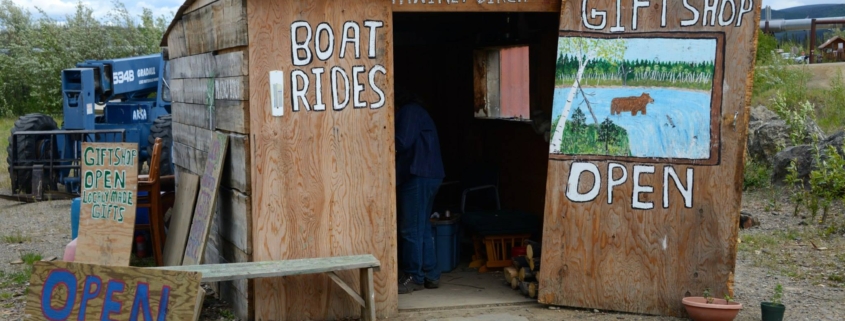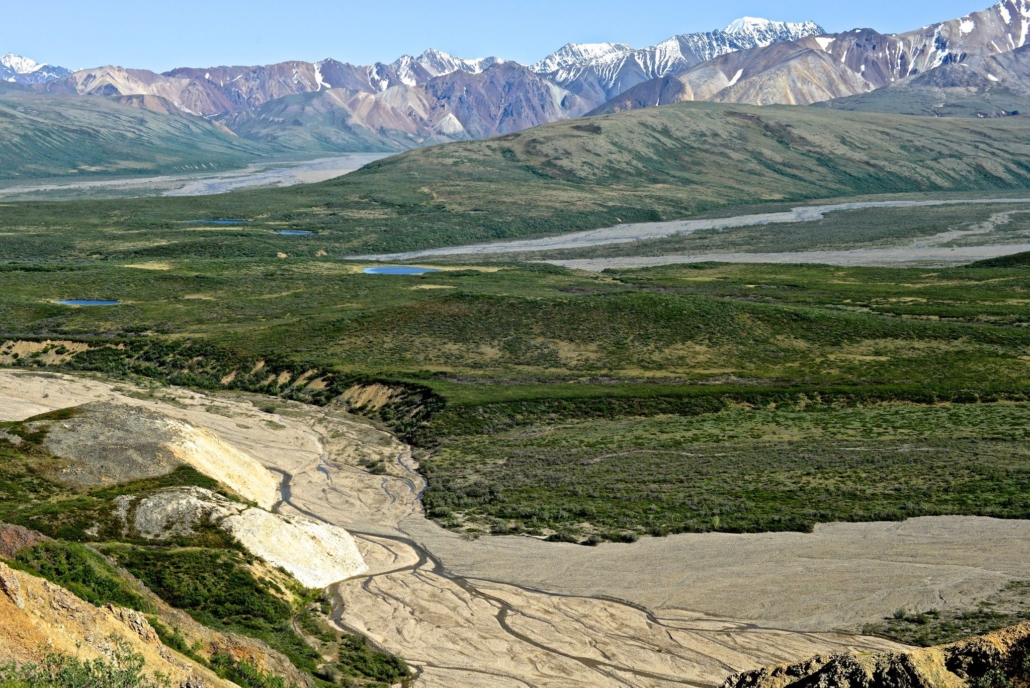Stories from the Road: Our Alaskan Neighbor
Guest Blogger: Mark Heisten
He was our neighbor for six days in Fairbanks and we spoke every morning and evening, but I knew nearly nothing about the man, nothing except that our dog, who usually barks at strangers who approach too quickly, immediately knew he was good. Timber lowered his head and wagged his tail as he let the man with hard hands and a gray handlebar mustache scratch under his chin and behind his ears.
The man spoke without strain – even, confident and strong. With steel-toe boots, chain drive wallet and leather vest, my first read was that he must be a biker, and the way he carried himself spoke of tough-guy…if needed. He looked like a dude smart enough to stay out of a fight, but who would end it on his feet no matter the circumstances.
Introductions in RV parks are categorical. Passers-by will ask about the Airstream, the truck, the breed of our dog or where in California we’re from. As Timber rolled over and let the stranger rub his belly, the man asked, “How do you like the Ford Diesel?”
The man was chatty and intelligent; loneliness sometimes italicized his words or wrinkled his face, but overall he was a man who found goodness in life – he appreciated steak and beer.
Over the course of the next few days, I picked up bits and pieces about the stranger. He was from Pittsburgh and, after 50 years, ready to create a new life. He’d purchased on finance by the State of Alaska a 10-acre plot about two hours north of Fairbanks, in the thick bush near Livengood (pronounced LIE-ven-good). The property had no services whatsoever and was thick with willows and spruce, so he had no access to its heart. He’d surveyed and started to fence it, but it was only his third year up in Alaska, so there was still a lot to accomplish. He’d carved enough of a path into the property to park a trailer and truck just out of sight from the road. He hoped that, if the weather held out this summer, he could continue cutting through the bush to the center where he would eventually build a cabin.
Alaska is about futures, not pasts. We never talked about jobs or education. Only once did his talk deviate from practical matters and venture into the philosophical. It was when I asked him why he decided to go it alone in the Alaskan wild.
“It’s solitude, I guess. It’s so darn far from everything that it’s just me. Mother Nature doesn’t cut any slack; people don’t ask your name.”
He paused and looked at me. “You think you could do it?”
“I read somewhere… how important it is in life not necessarily to be strong, but to feel strong… to measure yourself at least once.”
― Jon Krakauer, Into the Wild





